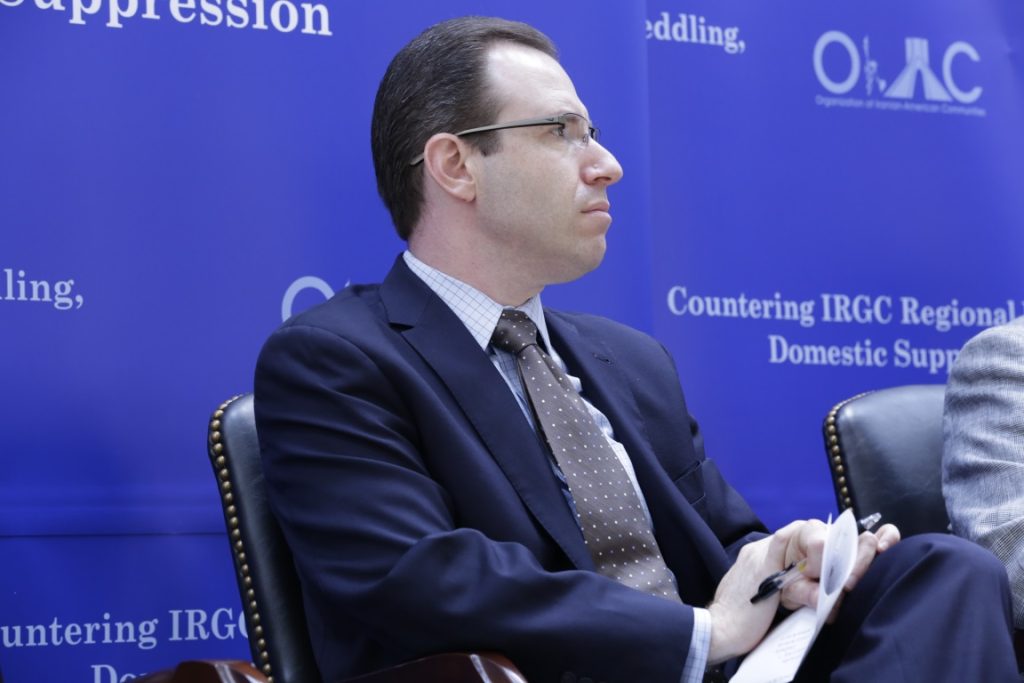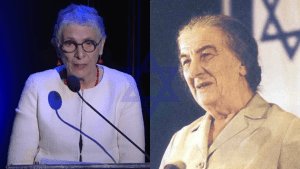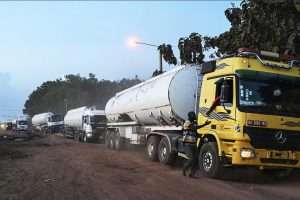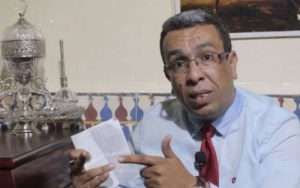Israel Acknowledges Morocco’s Western Sahara Claim

A leading US foreign policy pundit has underlined an important point about the future of relations between Israel and Morocco which could undermine or even reverse the Abraham Accords: Israel still has yet to fully acknowledge Morocco’s claims to sovereignty of Western Sahara.
Quite apart from the issue of a controversial new coalition government in Israel, raising questions about the future, Israel’s relations with Morocco are deeper and older than all of the other Arab countries who signed the Abraham Accords and who recognize – fully – Morocco’s sovereignty claim.
Ilan Berman, vice-president of the American Foreign Policy Council, believes that the resumption and evolution of relations between Rabat and Tel Aviv would have a “taste of unfinished business without a frank and unambiguous recognition of the Moroccanness of the Sahara by Israel” according to an article in Le360 which was based on an an Israeli newspaper piece.
In a column published by the Jerusalem Post , political scientist Ilan Berman talks about the fears aroused by the coming to power in Israel of Binyamin Netanyahu, leader of a coalition formed around parties of the far right .

The author believes that “an important part of the answer is found in the Abraham Accords. These normalization agreements, signed in 2020 with the United Arab Emirates, Bahrain, Morocco and Sudan, ushered in a new era of cooperation for Israel in a historically inhospitable Middle East. Two years later, negotiations in Jerusalem and in many capitals revolve around the best way to strengthen these ties,” he says, suggesting there is still much more that needs to be done to finally conclude them.
According to Berman, “expanding agreements is an opportunity. Hopes remain high in many quarters that the wave of normalization in the region may soon see new entrants, and the Biden administration, after some initial hesitation, has wholeheartedly endorsed the idea.”
“But before the agreements can be expanded, additional steps still need to be taken to strengthen ties between their existing members. In this regard, a lot can be done, starting with improving the links between Jerusalem and Rabat,” continues the columnist.
Berman recalls that “from the start, Moroccan-Israeli relations were among the most promising elements of the ongoing regional rapprochement. The ties between the two countries run extremely deep. It is estimated that one tenth of Israel’s population of more than 9 million people is of Moroccan origin and that many of them regularly return to the Kingdom.
READ Ramzy Baroud: Morocco should reconsider its ties with Israel
Moreover, he adds, despite the absence of formal political dialogue, the Moroccan government has had dynamic, if discreet, contacts with Israel for decades and, in doing so, has adopted a series of relatively progressive policies such as playing a leading role in promoting Holocaust education in the Arab world. Meanwhile, economically, trade between the two countries was flourishing even before normalization.”
“Since then, many countries, including members of agreements such as Bahrain, have recognized Morocco’s claims (on the Sahara issue, editor’s note). Israel, however, has still not done so. While Israeli officials have previously expressed support for the idea, the country’s foreign ministry has so far been reluctant to come out unequivocally on the issue of Western Sahara as an integral part of the kingdom,” Berman said.
For the political scientist, “this amounts to a critical error. For Morocco, the question of Western Sahara is not simply a government project, but an issue that lies at the very heart of its national identity. Indeed, many Moroccans have relatives who personally participated in the Green March to liberate the Sahara.”
“Israel is no exception and the way [Tel-Aviv] can influence the Western Sahara dossier promises to be a significant test of its budding partnership with Rabat and an indicator of the future evolution of ties between the two countries. “, continues Berman. “Recognizing Moroccan sovereignty over the Sahara seems to be a very good starting point,” he concludes.
The Moroccan perspective is pragmatic for the moment as it is fair to say that most Moroccans don’t even realize that Israel has not formally recognized Western Sahara. However, it is equally surprising to note that there are Moroccan citizens who understand the dynamics.
“It seems that the Israelis are still careful not to formalize their recognition of the Moroccanity of the Sahara (Southern Provinces), because we would like the Moroccans to do the same in a spirit of reciprocity. The problem for the Moroccan side is not to recognize the State of Israel – something that has already been done -, but within what borders? Those of 1967, or today?” writes on Moroccan commentator.
“Knowing that the West Bank is mostly claimed by Israel. The question of East Jerusalem is also added to the already thorny file of the other territories. What would we do with the Golan? All these political realities mean that Israel does not want to venture to officially recognize the territorial integrity of Morocco (including the Sahara) to, it seems, keep this map and keep the pressure on Morocco!” he adds.
Le360
Want to chase the pulse of North Africa?
Subscribe to receive our FREE weekly PDF magazine














